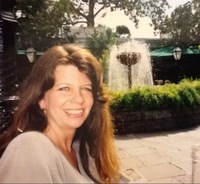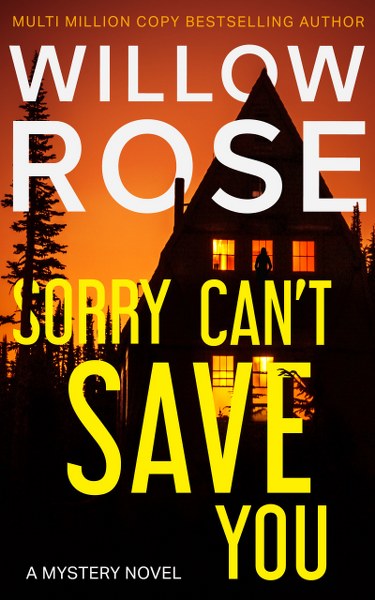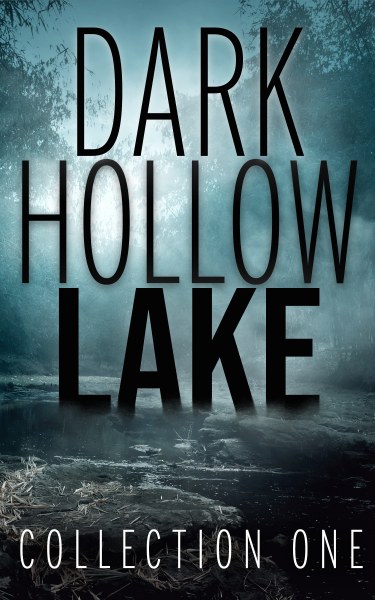No Good Deed Goes Unpunished
by E. James Harrison
.
.

Synopsis:
Five years ago, US Air Force pararescue jumper Garrett Shepherd saved a stranger’s life. Now that man, Edwin Sprague, is dead—and he’s left Garrett millions of dollars as thanks. But there’s a catch: Edwin has a task for Garrett to complete that will double his money—if he survives: Edwin wants revenge from beyond the grave, and he wants Garrett to get it for him.
Garrett agrees to give the bizarre challenge one week of his time, but he’s quickly pulled into a dangerous world of scandal, bribery, and secrets some would kill to keep hidden. He has attracted the attention of some very powerful people—people who have destroyed their enemies before and will not hesitate to do so again. With the help of a Navajo policeman and a beautiful lawyer, Garrett’s investigation leads him deep into the Navajo reservation—but uncovering the information he’s hunting for proves to be a deadly quest.
Genre: Mystery, Suspense
Published by: Covenant Communications Publication Date: January 5, 2021 Number of Pages: 304 ISBN: 9781524413545 Series: No Good Deed Goes Unpunished is not a part of a series.
Purchase Links: Amazon | Barnes & Noble | Goodreads
.
.
Check out this peek inside:
.
Edwin Sprague knew he was a dead man walking the instant he was sucker punched in his kidney and a blanket was thrown over his head. The only question rumbling through his mind as his hands were zip-tied behind him and he was shoved into a vehicle was whether it would be a quick bullet to the head or painfully slow as they tortured him to talk. He was hoping for the bullet, but that hope evaporated when he felt a needle plunged deep into his right bicep. Within a moment, the semidarkness of the blanket turned to the complete black of unconsciousness. When his consciousness returned, it came all jumbled and in bits and pieces, like someone channel surfing with a remote control. One second, there was a memory of him standing beside an abandoned Navajo hogan in Beclabito, Arizona, and the next, it was a vague image of two men dressed in desert camo. Then, as if someone had hit the rewind button, he was in the middle of a conversation with his wife or arguing with his son about a boat. Water splashing on his face abruptly stopped the channel surfing and pulled him to the here and now. He was lying spread-eagled on his back on the ground with what felt like a thousand sharp rocks digging into him. Above him, a gravelly voice said, “Wake up, old man.” The water was splatting on his forehead and running into his eyes and trickling down the side of his face before dribbling into his ears. Edwin tried shifting his head sideways to get out of the water, but it wouldn’t move. Then he tried lifting his right hand to block the flow, but it stayed as still as if it were nailed to the ground. He tried moving his left hand and got the same result. There was a slight chuckle, and the miniature waterfall stopped. After blinking several times and squinting against the sunlight, Edwin’s vision cleared enough for him to see a man standing above him holding a half empty water bottle. He watched as the man tipped the water bottle and a thin stream of water cascaded toward him, splashed onto his forehead, and again filled his eyes and ears. Frustrated and angry, he tried rolling onto his side, but he couldn’t move. The man gave a quick nasally laugh and continued pouring the water. “Come on, old man,” he taunted, “don’t just lay there; get up and make me stop. You’re supposed to be this tough old dude, but you don’t look so tough to me.” Then, pouring the water faster, he said, “You know, if you’d ask me to stop, I’d stop. How about it? You want me to stop?” Edwin drew a breath to shout, but all that came out was a soft puff of air. “What? I didn’t hear you. Did you say something?” the man sneered. Then, bending over slightly but without slowing the flow of water, he said, “No, of course you didn’t say anything. You can’t. And you can’t move either, can you?” Grinding his boot heel into Edwin’s hand, he said, “How about that—does it hurt?” Pain shot through Edwin’s hand, and he simultaneously tried moving his hand and screaming but could do neither. “Yeah, of course it hurt.” He stopped the flow of water. “It’s the drug, old man. You can see and hear, and feel pain, but you can’t move any muscle in your body, which is too bad for you.” Squatting down, the man grabbed Edwin’s hair and yanked his head back, then poured a few drops of water into his upturned nose. Every natural reflex told Edwin he was drowning, and his body instinctively reacted to stop the water from hitting his lungs. Edwin sneezed out a vaporized spray of snot and water directly into the man’s face. The man reared back, wiped the watery liquid from his face, then doubled up his fist and slammed it into Edwin’s cheek. “Stop it! You’ll kill him!” another voice shouted from somewhere above Edwin’s head. “So what? He’s going to die anyway.” “Yeah, but you can’t beat him to death or drown him. That’s not what they want done.” “He blew snot on me!” the man shouted back angrily as he rose to his feet. “I don’t care. We’re going to do exactly what we were hired to do. Nothing more, nothing less.” The man looked down at Edwin, drew back his foot, and kicked him in the ribs, causing Edwin’s lungs to huff out a muffled explosion of air. Then, turning away, he asked, “Has the rest of the money been deposited into our account?” “Not yet.” “Somebody better hurry. I’m getting really tired of this forsaken desert. It’s as desolate and ugly as anyplace in Africa.” With that, he kicked sand onto Edwin’s face. “Leave him alone, and come sit under this tree. We should get a call anytime now.” Edwin followed the man’s retreating footsteps with his eyes, seething with anger but unable to lift a finger. He blinked his eyes several times to clear a particle of dirt, and for the first time since coming to, he concentrated on what little he could see. Overhead, a few cotton puffs of clouds dotted the intense blue of the summer sky. To his right he could barely make out the outline of red sandstone cliffs. A stubby sagebrush and prickly pear cactus blocked his view to the left. Looking down, he couldn’t see anything, not even the tips of his boots. All of that was enough to tell him he was in the desert and that within a couple of hours he would be slowly roasting under the blistering rays of the sun and, if he was still alive, praying for someone to pour some water on his face. Closing his eyes, he forced his mind to concentrate on moving each finger on his right hand, then his left. When none moved, he tried wiggling his toes in his boots. Nothing. Edwin guessed an hour had crawled by before he heard the distinct chirp of a satellite phone announcing an incoming call. Then there was a very soft, muffled conversation, too faint for him to understand, followed almost immediately by the sound of footsteps approaching. A few seconds later, a man was standing on either side. The man who had been pouring water onto his face remained standing, holding a bottle of water in his hand. The second man squatted down, pulled his lips back in a tight smile, and said, “Mr. Sprague, it’s time for us to leave. My friend here doesn’t think we should tell you anything, but I’m a little more charitable than he is, so let me explain what is about to happen. As you know, you’ve been drugged. Let me correct that. We’ve given you a combination of drugs since we abducted you yesterday—that’s right, yesterday. Until just a couple hours ago, you were completely unconscious. You had to be so we could get you here without you knowing where ‘here’ is. Just as you started coming around, we injected you with a different drug, and I don’t need to explain what it’s doing to you.” Patting Edwin on the shoulder as if to console him, the man continued. “I suspect it’s a terrifying experience to be able to see and hear but not be able to move or even speak. Don’t worry. Over the next six or eight hours, the drug’s effects will slowly wear off. You will gradually regain some of the use of your fingers, arms, feet, and legs. You’ll be nauseous, have the worst headache of your life, and generally feel worse than any day of your life, but you’ll be able to stumble around.” Edwin tried cursing the man and silently screamed in frustration when nothing came out. “Our client wants you to die naturally out here in the desert. You have no idea where you are, and there is no possibility you’ll find your way back to civilization before you die of thirst. You’ve already been without food and water for twenty-four hours, and in the heat of the day and cold of the desert night, I suspect someone of your age and condition will last only another day, maybe two at the most. And even if you knew where you were, you couldn’t walk for help; civilization is too far, and your muscles will be too cramped. You’re going to die out here, Mr. Sprague, and after you do, coyotes will feed on you for a while, then scatter your bones.” The man rose to his feet, looked down at Edwin, and said, “Our client wants us to make certain you understand how ironic, yet fitting, it is that the desert you’ve been exploiting and destroying all these years will get its revenge by finally destroying you.” Edwin shifted his gaze to the man who was holding the water bottle, who bent over and set the bottle on the ground. He picked up a fistful of red dirt with one hand and forced Edwin’s mouth open with the other. “This is for blowing snot on me,” he said and poured the dirt into Edwin’s mouth. Edwin reflexively blew the dirt out and began coughing and gagging. Through spasms of coughs, he watched as the man rose to his feet, picked up the bottle, and began pouring the water out onto the ground beside Edwin’s head. When the bottle was empty, he shook the last few drops onto Edwin’s face. Then the two of them turned and disappeared from his sight. *** Excerpt from No Good Deed Goes Unpunished by E. James Harrison. Copyright 2021 by E. James Harrison. Reproduced with permission from Covenant Communications. All rights reserved.
.
Author E. James Harrison
.

Much to his dislike, E. James Harrison is not a New York Times bestselling author. However, he is the author of four other novels, one of which was nominated for a Whitney Award (which he didn’t receive) and all of which his wife, mom, and daughters think should be best-sellers. Born in Salt Lake City, Utah, he learned to type in the seventh grade on an old Smith-Corona manual typewriter and has been pecking out words ever since. He somehow managed to graduate from college with degrees emphasizing public relations and creative writing and has spent most of his professional life writing articles about such gripping subjects as internet technology or has kept veterinarians spellbound with articles about the latest advances in goat, rabbit, and hamster medicine. When he isn’t putting words on paper for himself or others, he can be found boating with his family, slaving away on the family ranch, flying an airplane, or traveling to see new things and meet new people. He and his wife, Deborah, split their time between the deserts of southern Utah and the mountains of Idaho.
.
Tour Participants:
Visit these other great hosts on this tour!
Giveaway!:
.
a Rafflecopter giveaway
~~~~~
Thanks so much for visiting fuonlyknew and Good Luck!
For a list of my reviews go HERE.
For a list of free eBooks updated daily go HERE
To see all of my giveaways go HERE.
I am an Amazon Affiliate. Product images are linked.














































